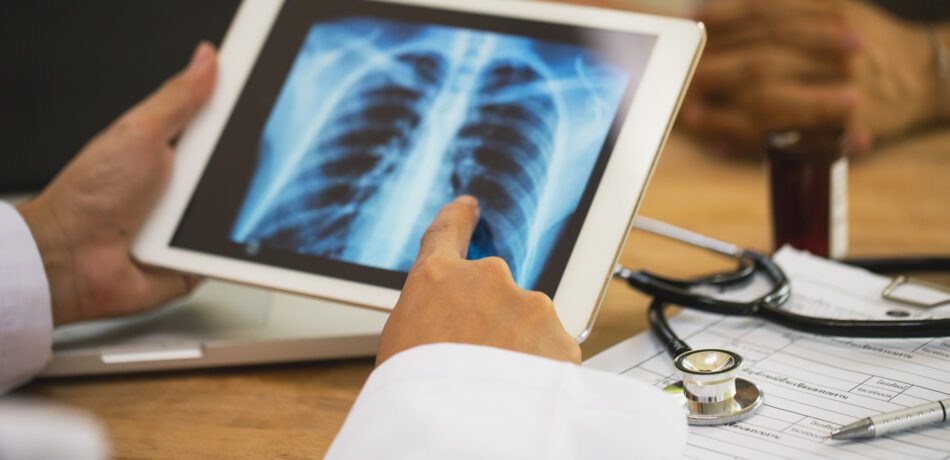Chances are you know somebody who has had lung cancer, whether it’s a loved one, friend or an acquaintance. Lung cancer is prevalent in the U.S. as the second most common cancer in both men and women and the leading cause of cancer death.
When you think about a lung cancer patient, someone who’s older and has smoked for a long time might come to mind. That’s because most people diagnosed with lung cancer are 65 or older, and people who smoke are up to 30 times more likely to get lung cancer than people who don’t smoke.
That said, younger people and nonsmokers can get lung cancer, too. And when young people get lung cancer, they’re far more likely to be non-smokers than smokers. It’s believed that genetics play a more substantial role in lung cancer among young people, and sometimes other risk factors such as secondhand smoke, radon exposure or air pollution contribute to the risk.
Guaranteed Acceptance Life Insurance
Coverage options starting at $9.95 a month!
Guaranteed acceptance life insurance without medical exams, health questions, or rate increases.
Lung cancer can affect anyone, so whether you’re older or younger, a smoker or nonsmoker, it’s worth knowing about the symptoms. Most people are aware of the common symptoms of lung cancer, such as coughing, chest pain, shortness of breath, wheezing, coughing up blood, fatigue, and unexplained weight loss. In addition, there are a number of atypical symptoms of lung cancer you should know about:
Arm/shoulder pain or weakness: This can be a sign of a Pancoast tumor, a rare type of lung cancer that begins in the rounded upper section of the lung and spreads to nearby areas of the body.
Back pain: Up to 25% of lung cancer patients experience back pain.
Blood clots: Doctors are unsure why lung cancer patients are more likely to get blood clots in their legs, arms or lungs.
Bone pain: When lung cancer cells spread and travel through the bones, it can cause weakness and achiness.
Clubbed fingers: Some lung tumors make chemicals that can push more blood and fluid to the tissues in your fingertips making them look thicker than usual.
Eye problems: The spread of tumors may cause Horner syndrome, which can cause a droopy eyelid and reduction of pupil size on one side of the face.
Headaches: When a lung cancer tumor squeezes the vena cava, it can cause headaches from the backed-up blood.
Heart problems: High calcium levels and anemia as a result of lung cancer can cause a rapid or irregular heartbeat.
Related: 30 Days of Heart Health Activities to Help You Thrive!
Mental health issues: Doctors aren’t sure why, but lung cancer has been linked with anxiety, depression and dementia.
Neurological symptoms: Lung cancer-related dizziness, headaches and balance issues usually result from dehydration, anemia or a tumor that has spread to the brain.
Puffiness: When a tumor chokes off the superior vena cava, it can cause swelling of the face, neck and arms.
Stomach problems: Lung cancer may cause hypercalcemia, which can cause nausea, decreased appetite and abdominal pain.
Swollen breasts in men: Large-cell lung cancer may cause swelling and tenderness in men’s breasts.
Thirst and dehydration: Higher calcium level in the blood can cause extreme thirst and frequent urination.
Related: How to Know When Drinking Too Much Water is Dangerous
Reducing Your Risk of Lung Cancer
Simple ways to reduce your risk of developing lung cancer include: not smoking, avoiding secondhand smoke, getting your home tested for radon, avoiding exposure to known cancer-causing agents, and eating a healthy diet.
Lung cancer screening is recommended by the CDC for those who:
- Have a 20 pack-year or more smoking history, and
- Smoke now or have quit within the past 15 years, and
- Are between 50 and 80 years old.
This X-ray like screening is quick and painless.
Want more? Check out our blog, Chronic Illness and Disability: 8 Tips to Cope
nthly Retirement Income for a Couple?
Colonial Penn is here for you!
Colonial Penn has specialized in making life insurance simple and accessible by offering it directly to consumers since 1957. Click here to learn more.





